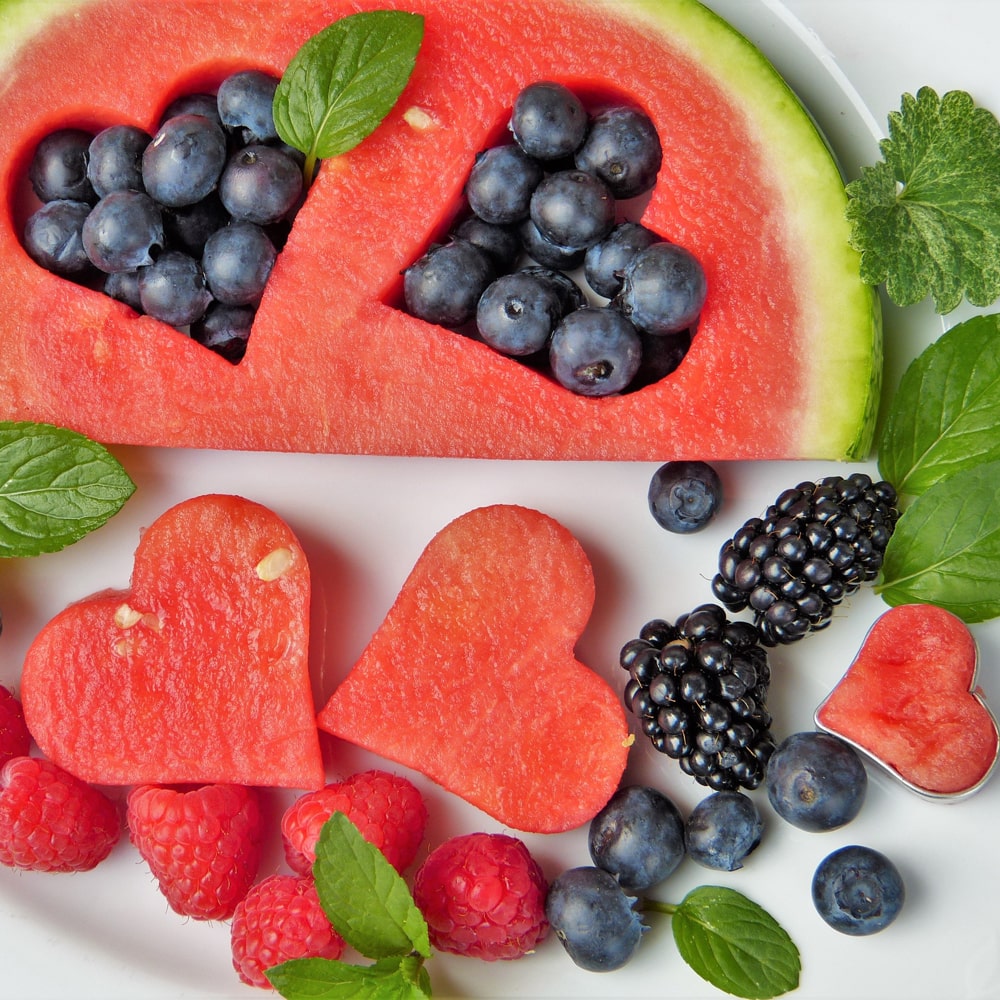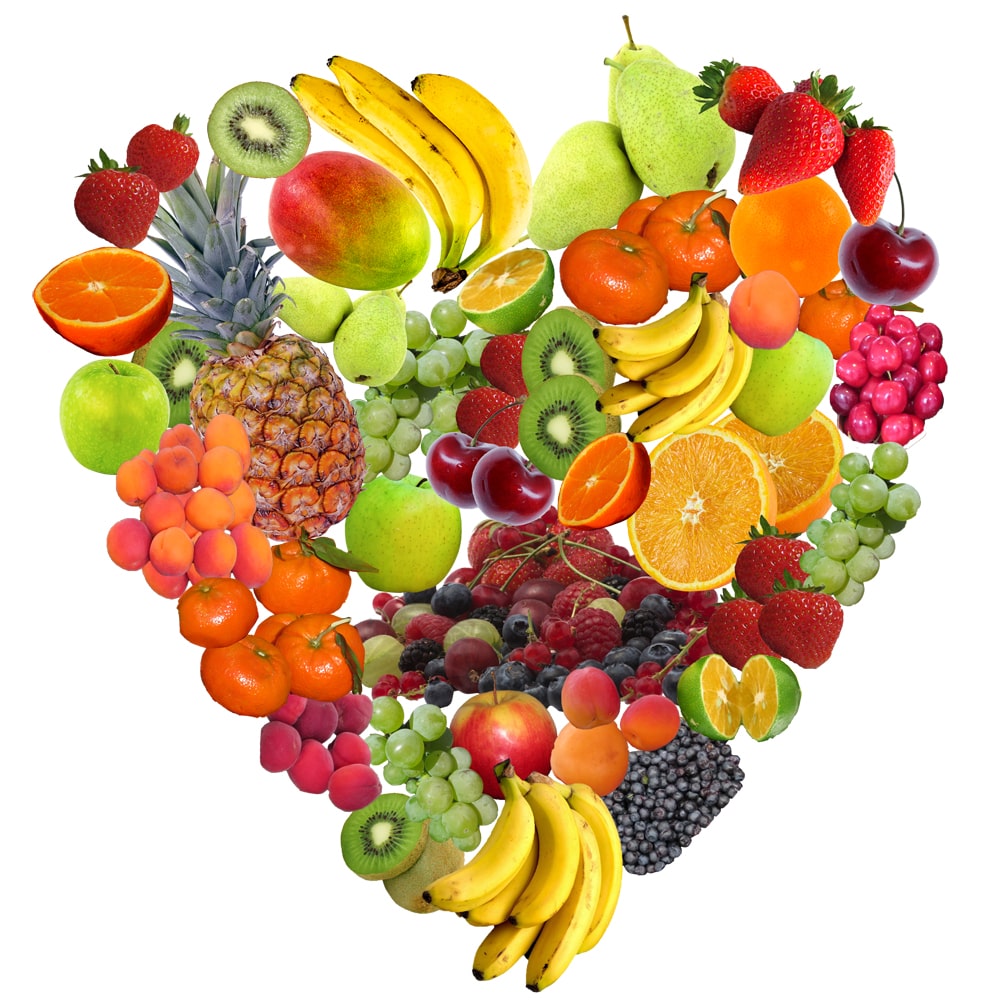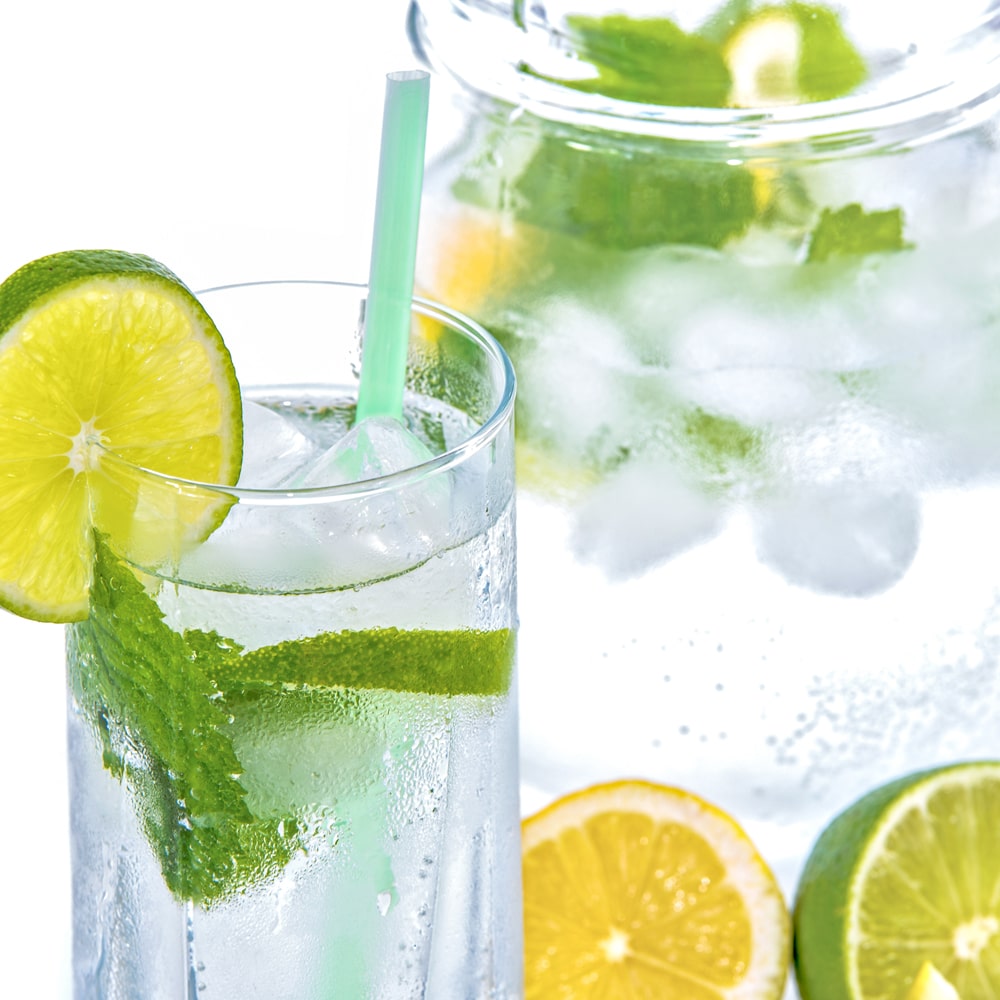
Nutrition and Health
1. Eat healthy
Healthy eating does not mean eating only apples and carrots. It is above all important to change ingredients regularly, to favour plant-based foods and to enjoy variety. All this contributes to a balanced diet and helps the body to secure the nutrients it needs in adequate quantities.

Eat healthy with fruit and dairy products

If you eat a lot of fruit, you eat healthily and provide your body with valuable vitamins, minerals, fibre and secondary plant substances.
2. Use whole grain products
To increase the amount of fibre in your diet, replace carbohydrate-rich foods such as pasta, rice or bread with whole grain products. This is because dietary fibre is responsible for maintaining the feeling of satiety for longer, for allowing blood sugar levels to rise more slowly and for preventing constipation. The German Nutrition Society (Deutsche Gesellschaft für Ernährung | DGE) states that Germans do not eat enough dietary fibre.
3. Eat fruit and vegetables every day
Ideally, an adult’s daily ration should include two portions of fruit and three portions of vegetables. If possible, choose mainly fresh as well as seasonal produce. This also includes pulses and nuts (unsalted). Most fruits and vegetables contain very few calories, but all the more valuable vitamins and minerals. In addition, fruit and vegetables also contain so-called secondary plant compounds, which experts believe have many health-promoting effects.

Eat fruit and vegetables every day for a healthy diet.

If possible, use only vegetable oils.
But how do you achieve this daily ration? It is sufficient to chop up a banana, an apple or a few strawberries at breakfast and add them to your muesli. For this, you should use fewer cereal flakes, which usually contain a lot of calories. In addition, pack a few pieces of fruit for work. Kohlrabi, carrots or peppers also make the ideal snack between meals. Your main meals should also consist of at least some vegetables. Alternatively, you can prepare a salad as a side dish.
4. Eat less sausage and more dairy and fish products
Dairy products such as yoghurt, quark and cheese are rich in protein and calcium. These products should therefore be consumed daily. Fish should be eaten once or twice a week. Make sure to buy products that have an officially recognised sustainable origin. Fish contains the healthy omega-3 fatty acids as well as iodine and selenium. Meat should be consumed less. Although red meat in particular is an important source of protein and B vitamins, it is not exactly considered risk-free, especially in large quantities. The DGE recommends eating no more than 300 to 600 grams of sausage or meat per week.
5. Fats should be chosen consciously
If possible, use only vegetable oils such as rapeseed oil. Although vegetable oil also provides many calories, it contains important fatty acids. Hidden fats should be avoided as much as possible. The latter are often found in sausages, sweets, convenience products and fast food.

Eat fish and fish products twice a week.

Drink about 1.5 litres of water daily.
6. Consume salt and sugar in moderation
Sugar is particularly high in calories. For this reason, sweets should be consumed only rarely, if at all. Excessive consumption of salt can be just as bad. An amount of six grams of salt per day should not be exceeded if possible. It is best to rather use a variety of herbs for seasoning. If you still want to use salt, choose a product that is enriched with fluoride and iodine.
7. Drink enough
Water is the most important component of the body. The human organism loses water especially through sweating and evaporation. Therefore, healthy people should drink about 1.5 litres of water daily. Since it contains no calories, water should always be preferred over other drinks. Unsweetened tea is also suitable. Important: Calorie-containing drinks cannot make you feel full and therefore tend to promote weight gain rather than weight loss. Incidentally, many alcoholic beverages also contain calories.
8. Prepare food as gently as possible
Cook your food only as long as necessary and use as little water as possible. Also, avoid unnecessarily high temperatures. This is the best way to preserve nutrients and prevent the formation of harmful substances such as acrylamide.
9. Enjoy meals and eat at your leisure.
The faster you eat, the more you will eat before the feeling of fullness arrives. Therefore, eat slowly. Take your time with the meal. The more you eat, the more you will enjoy it.

Take your time and enjoy the food.

Regular exercise is important for a healthy lifestyle.
10. Get plenty of exercise
Regular exercise is just as important for a healthy lifestyle as a balanced diet. Therefore, cycle more often than drive or go for regular walks. This not only makes it easier to lose weight, but can also prevent many diseases.